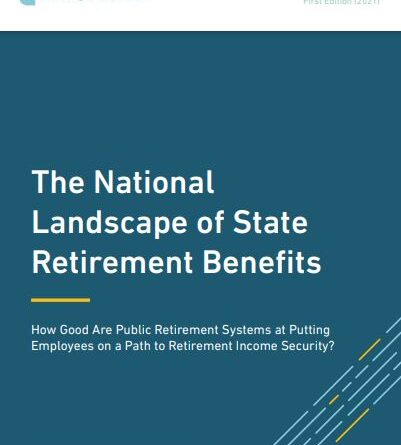The National Landscape of State Retirement Benefits. How Good Are Public Retirement Systems at Putting Employees on a Path to Retirement Income Security?
By Jonathan Moody & Anthony Randazzo
Retirement security is ultimately about retirement income. Families and individuals want to know that during their retirement years they will have enough weekly, monthly, or annual income to live comfortably and meet their basic needs. Of course, many people aspire to more than just the basics. Ask even a handful of individuals about how they want to live in retirement, and you’ll hear a wide range of preferences. Expenses can vary from family-to-family, too, depending on housing, health care costs, and dependents. So exactly how much income is necessary will vary according to a particular person or family. But at the simplest level, the focus is still on income. And retirement security is ensuring that individuals have access to adequate income during post-working years. How secure are the retirement prospects for public sector workers? This is the focus of this report and the answer depends on where in the country someone is working and how long they plan to stay in their job. The “Retirement Security Report” (RSR) is a comprehensive assessment of the quality of benefits being offered to public sector workers nationwide. Many reports related to topics like “public pensions” are focused on the financial sustainability of public sector retirement systems and their costs.1 By contrast, the RSR is principally focused on the value of benefits being offered to public sector workers, and it looks at whether those benefits are actually offering a path to retirement security for municipal employees, public safety officers, state workers, and teachers.
Get the book here
411 views











